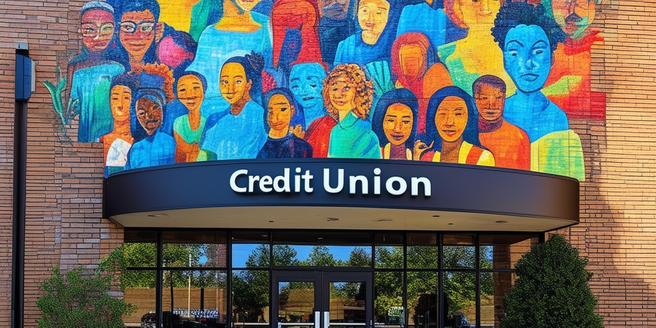Member-Centric Approach
Credit unions are renowned for their member-centric approach. Each member is both a customer and an owner, which fosters a sense of belonging and commitment to the community. This model ensures that credit unions prioritize members’ needs over profits. Decisions are made democratically, as members have a say in how the organization is run. This participatory structure enhances trust and ensures transparency. Services are tailored to benefit members, often resulting in lower fees and competitive rates. The emphasis on member satisfaction means that credit unions invest in understanding and addressing the unique needs of their membership base. This personalized attention allows them to offer financial products that cater specifically to their members, ensuring better service and customer satisfaction. By focusing on the well-being of people rather than profits, credit unions create a supportive environment that benefits all members.
Lower Fees and Better Rates
Credit unions offer financial products with lower fees and better rates than traditional banks. As member-owned cooperatives, they prioritize the financial well-being of their members above generating profits. This structure allows credit unions to operate with lower overhead costs, passing these savings directly on to members through reduced fees for services such as account maintenance, ATMs, and overdrafts. Moreover, the savings realized from lower operational costs translate into higher interest rates on savings accounts and lower interest rates on loans and mortgages. This approach to financial products is aligned with their not-for-profit mission, ensuring that members receive the greatest possible benefit. Lower fees and better rates make credit unions an attractive option for those looking to make the most of their assets while minimizing costs, further supporting members’ financial health and stability.
Emphasis on Community Development
Credit unions play a vital role in community development by focusing on the needs and growth of local communities. Because they are rooted in the community, they understand local economic challenges and opportunities, allowing them to provide personalized financial services that support neighborhood growth. They often invest in small businesses and community projects, offering loans and support to ventures that might be overlooked by larger financial institutions. This commitment to local development extends to financial literacy programs and partnerships with local organizations that promote economic stability. By maintaining a strong community focus, credit unions can contribute to job creation, affordable housing initiatives, and sustainable economic practices. Their emphasis on community welfare ensures that profits are reinvested locally, reinforcing their role as a cornerstone of community development and fostering long-term growth and prosperity.
Greater Transparency and Trust
Credit unions are synonymous with transparency and trust, qualities that stem from their ownership structure and operational philosophy. Member ownership implies a higher level of accountability, leading to open communication and visibility into organizational actions. Members can attend annual meetings, access financial reports, and participate in electing board members. This democratic process ensures that policies align with the collective interest rather than maximizing profit. Credit unions are committed to ethical practices, promoting integrity in their dealings and consistently prioritizing member welfare. This commitment to transparency builds a strong foundation of trust between credit unions and their members. By demystifying their operations and involving members in decision-making, credit unions foster an environment where members feel confident in the management and growth of their assets, solidifying long-lasting relationships based on mutual respect and understanding.
Robust Financial Education Programs
Credit unions are deeply invested in providing robust financial education programs to empower their members with the knowledge and skills needed for financial success. Recognizing that informed members make better financial decisions, many credit unions offer workshops, seminars, and online resources that cover a range of topics such as budgeting, saving, investing, and credit management. These programs are often available at no cost to members, emphasizing the credit union’s commitment to member development and financial literacy. By equipping members with critical financial knowledge, credit unions play a pivotal role in enhancing their financial independence and stability. These educational initiatives also foster informed decision-making, contribute to reducing financial stress, and help members achieve their financial goals. Credit unions’ dedication to financial education exemplifies their broader commitment to improving members’ financial well-being and community prosperity.
Flexible Loan and Savings Options
Credit unions offer flexible loan and savings options tailored to meet diverse member needs. By providing competitive interest rates and lower fees, they make borrowing more accessible and affordable. Loan products often include personal loans, auto loans, mortgages, and business loans, with customizable terms to accommodate members’ individual financial circumstances. Savings options are equally varied, offering products such as regular savings accounts, money market accounts, and certificates of deposit, all designed to help members grow their finances effectively. The flexibility in both lending and savings ensures that credit unions can support members at different life stages and financial situations, from building credit to financing education or home ownership. This member-focused approach means that credit unions can adapt their financial products to align with members’ goals and priorities, fostering financial well-being and long-term relationships.



